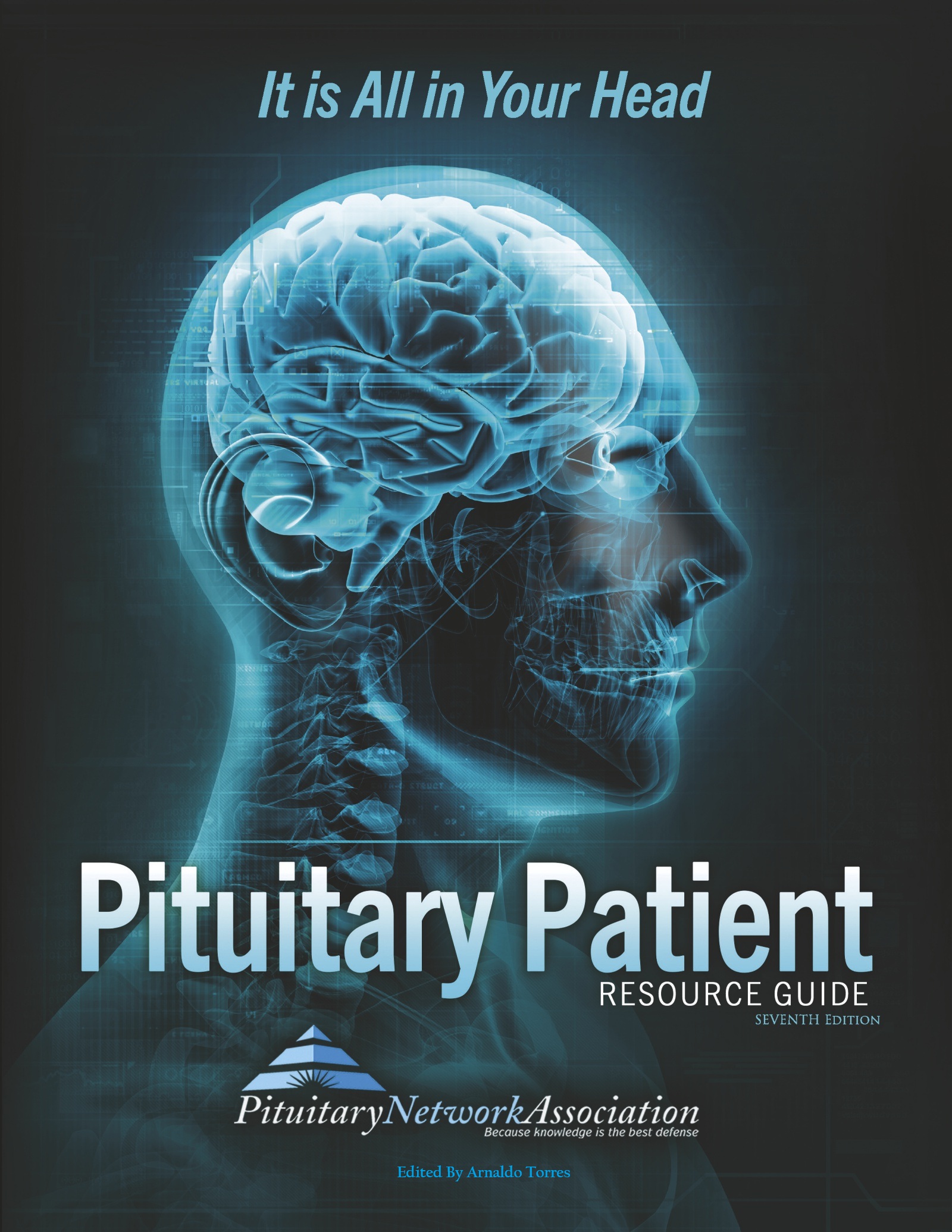Acromegalic Success Story
By Tom O’Neal
And now for some good news and a few tips from a “cured” acromegalic. I’m new to PNA but I thought I would share my story with you in the hope that it may offer some encouragement to those of you who may be very concerned, very frightened and very frustrated.
My acromegaly tumor (3 cm) was discovered in 1991 by a GP who just happened to be a very close friend. He broke the news gently and told me, the best he could, what the problem was and what my options were. He had done a lot of reading before talking to me and explained that the only way to completely remove a pituitary tumor was to remove it surgically. He stressed that he, and most of the medical profession, was very ignorant about pituitary tumors. He explained the procedure for removing one was very delicate and required a skilled surgeon working with a team that included a top notch endocrinologist.
He was honest and acknowledged that he had no idea where to send me. He did warn me that I should not let anyone use me as a guinea pig. I thank him to this day for that advice. He then suggested that we begin a search by calling all friends, family and associates, explaining the problem and have them check their areas for surgeons and endocrinologists who were familiar with pituitary disorders. Perhaps, he said, we would get a couple of names that came back from a lot of the contacts.
I personally made calls to Washington, DC, Los Angeles, Houston, Atlanta, Michigan, and Minnesota, Canada and other places. All of my friends in those areas made inquiries. Within a week I had many lists of names. So did my GP. Only two names were on all the lists – Dr. George Tindall at Emory University Hospital in Atlanta and Dr. Edward Laws, now at the University of Virginia.
More checking showed that both Tindall and Laws were neurosurgeons who had a team of doctors who specialized in pituitary tumors. Both also worked with a very good endocrinologist. Both had performed more than 1,000 transsphenoidal surgeries and both had excellent track records. We were on our way.
Since my parents live in Atlanta, I chose Tindall. My GP made the appointment. Despite being told by many of the doctors I had contacted and who had seen my MRI that a 3 cm tumor would cause major problems, especially considering the awkward position it was in, I was put at ease quickly in Atlanta.
Dr. Tindall checked my MRI, confirmed what I already knew and said: “I think we can handle this. How about next Monday.” He and all his team treated me with great respect. I was introduced to all those who would be involved, including the endocrinologist, Dr. Richard V. Clark, a really great guy. I was introduced to David Adams, one of Dr. Tindalls many assistants and the man who specialized in removing a tiny piece of adipose (fatty) tissue from the abdomen to pack the sella after the tumor had been removed. Before I left, Dr. Tindall took me to meet a woman who had undergone transsphenoidal surgery (Cushings) the day before. It was very reassuring.
My tumor was removed on July 9, 1991 beginning at 7 a.m. When I awoke at 4 p.m. Dr. Tindall was in my room and whispered gently, “I believe we got it all.”
Today, eight and a half years later, all blood tests have been perfect. I received my most recent test results on October 26, 1999. I have required no medications and no radiation treatments since surgery. I feel and look great and I am keeping my fingers crossed that my tests will remain perfect until I hit my 10-year period, which is both Tindalls and Laws time frame for a complete cure. Thats only a year and a half years from now.
I consider myself very lucky and blessed. Here is what I learned. I hope it will help you.
Remember, most endocrinologists and neurosurgeons are not experienced in treating pituitary tumors. Search for the right one until you are exhausted.
If you get the right team, youll know. They will treat you with respect and youll get no conflicting information. They know what you are going through; they deal with this everyday – just like you.
Do not let ANYONE tell you what you must do (radiation, medication, etc.) until you are convinced they know what they are talking about. Remember my GPs warning: Most know little about pit tumors; dont be anyones guinea pig. Get the right team.
Good luck,
Tom O’Neal






